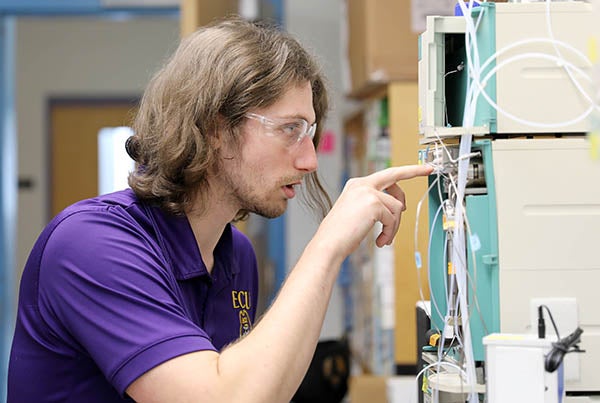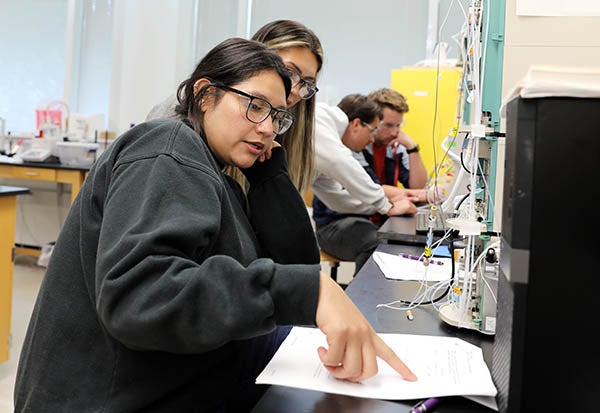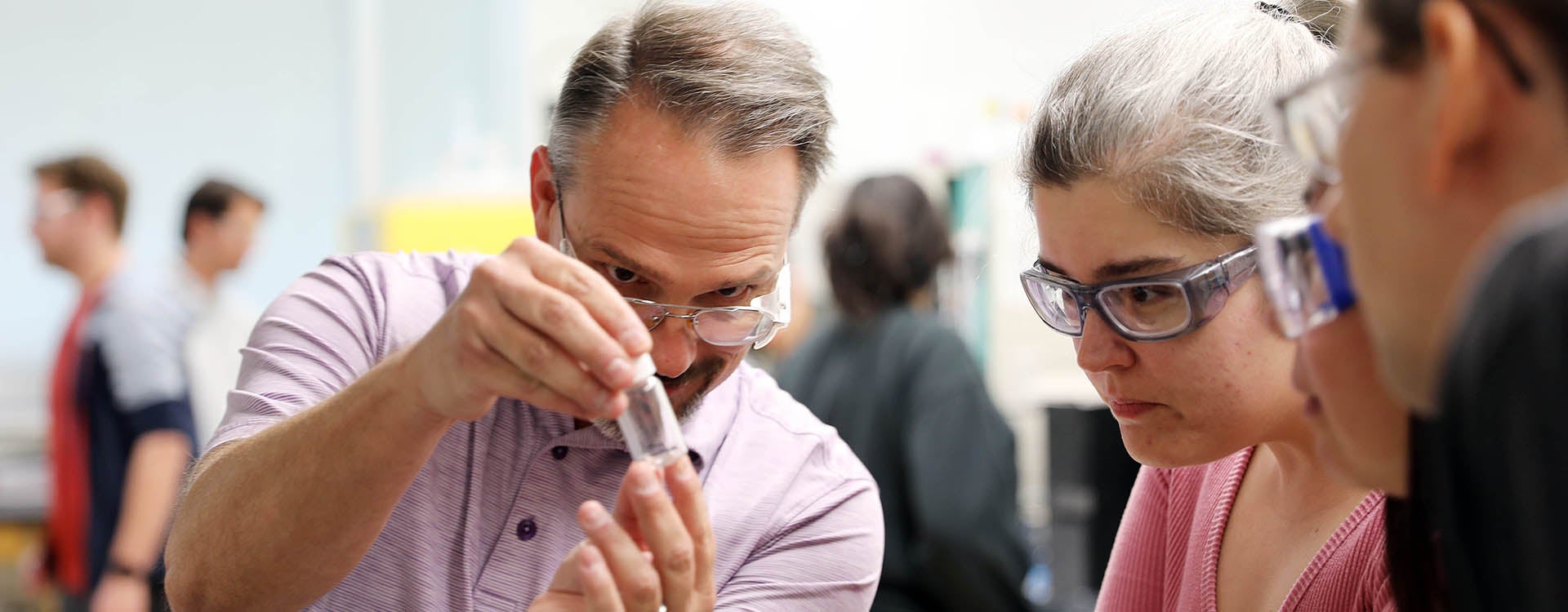Continuing to Learn
ECU chromatography course allows pharma workers to build skills
William Odom knows education doesn’t end with a degree.
The 2022 East Carolina University graduate in chemistry was back on campus to take a two-day course on understanding high performance liquid chromatography.

William Odom, an associate scientist at Fresenius Kabi in Wilson, works on a chromatography lab in the Science and Technology Building.
“I have a little over a year of experience in industry, and anything to help broaden my skills and make me a better analyst, especially if I can use it in my current job, I want to do it,” said Odom, an associate scientist with Fresenius Kabi in Wilson. “It’s just building my skills up and allowing me to put forward the best results I can, especially in the pharma industry.”
Chromatography is a process that separates the components of a mixture. It is particularly important in the pharmaceutical industry where exact measurements are crucial to good health care.
“If you were to look at any IV bag or injections in hospitals, how much of the active ingredient is actually in what you’re consuming, this is the best way to determine that. It’s very high precision,” Odom said.
The process can also determine if any impurities exist in a mixture.
“Even the smallest amount of a harmful substance in our bodies can wreak havoc,” Odom said. “We want to make sure with certainty that it’s not in there. We also want to make sure that the nurse or the doctor who is prescribing something can be certain that this company puts out good results for the medicine that we’re creating.”
Dr. Jack Pender, director of pharmaceutical training and laboratory services in the Department of Chemistry, taught the course.
“It’s an opportunity to help them get some additional knowledge and to show some techniques for something they do every day,” Pender said. “I can tell them, but it might not stick. If they come here and can put their hands on it and they do it, they’ll remember it. That’s why we’re doing so much hands-on activities. They’re not starting from the beginning. They know how to run this equipment as part of their job, but we’re just demonstrating some principles that will help.”
Pender said he last taught the course in 2019. A year later, the COVID-19 pandemic shut down in-person training. Discussions during the annual pharma conference put on by ECU’s Eastern Region Pharma Center highlighted the need to start the course again, he said.
“With the success of the pharma conference, word is getting out,” Pender said. “We’ve got two full classes this year.”
Lectures, videos, pen-and-paper activities, hands-on HPLC analyses, chromatography simulations and group discussions are part of the course. Pender puts an emphasis on lab activities that show theoretical concepts happening in real time.

Georgina Ruiz, left, and Marie Hendren, both of Fresenius Kabi in Wilson, work on a chromatography lab.
“It’s their chance to turn the knob and try to see if they can do better. They’re all competing against each other,” he said. “What they’re really getting out of it is the cause and effect. If they adjust this, then this happens. In their jobs, they have to run it as it’s written. It’s preset. Here they are getting the reason behind it, and they are learning by doing it.”
Georgina Ruiz, a scientist I at Fresenius Kabi in Wilson, said the Food and Drug Administration tightly regulates pharmaceutical work. The course allowed her to experiment with the equipment.
“We don’t get to play because it’s regulated by the FDA, but here we’re getting to play and find out what’s going on,” she said.
Ruiz said the knowledge she’s gained from the course will help in her work.
“This is going to make things faster for us,” she said. “We can do things on our own instead of relying on a senior scientist or someone else to help us. We can actually picture in our heads that if we do this, it will change. If we see something in the chromatograph, we know what causes that now because we learned it in here, and we know how to fix it because we learned it in here.”
Pender said the course is just another example of ECU’s support of the region’s growing pharmaceutical industry. Since 2020, pharmaceutical and biotech companies have invested $13.1 billion across the state, helping create 14,500 jobs. As an illustration of that growth, May’s pharma conference drew about 200 attendees, far eclipsing the 68 who attended ECU’s first pharma conference in 2019.
